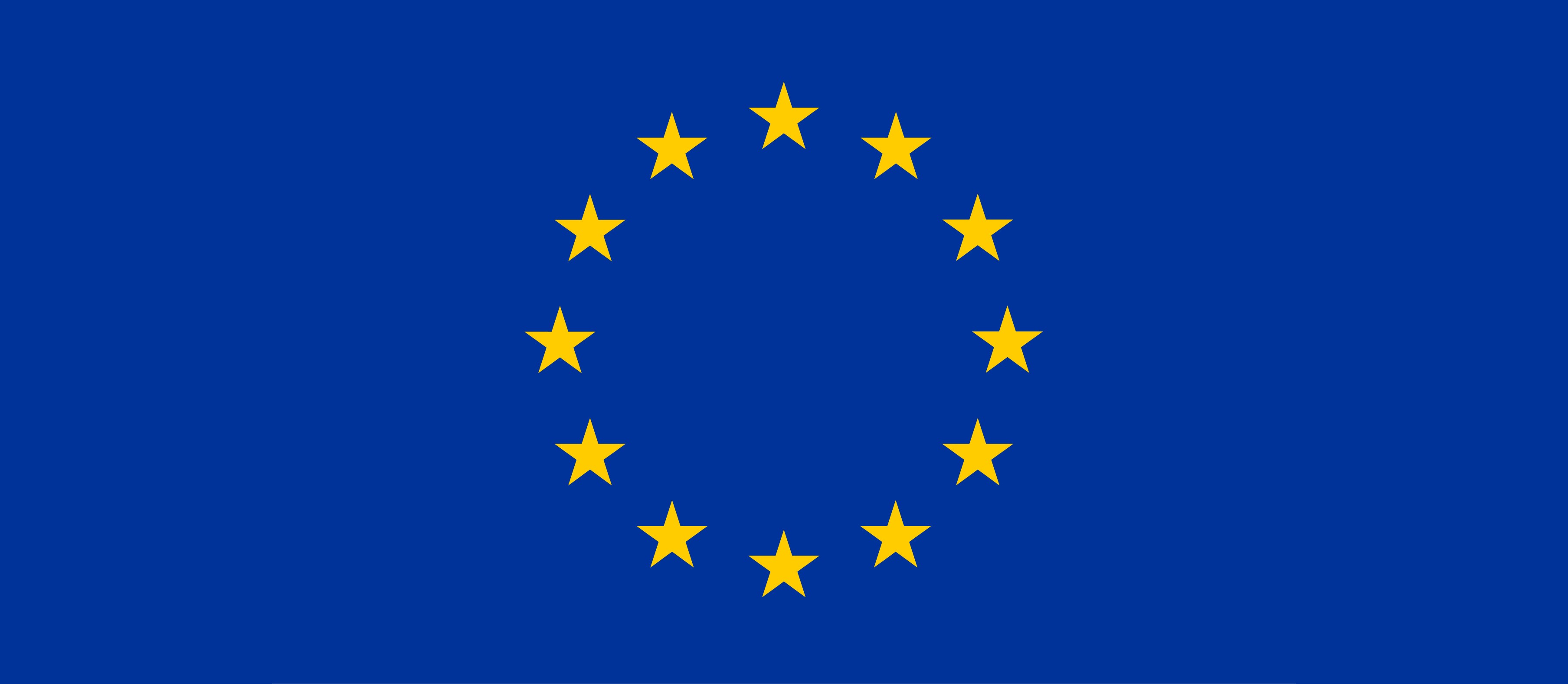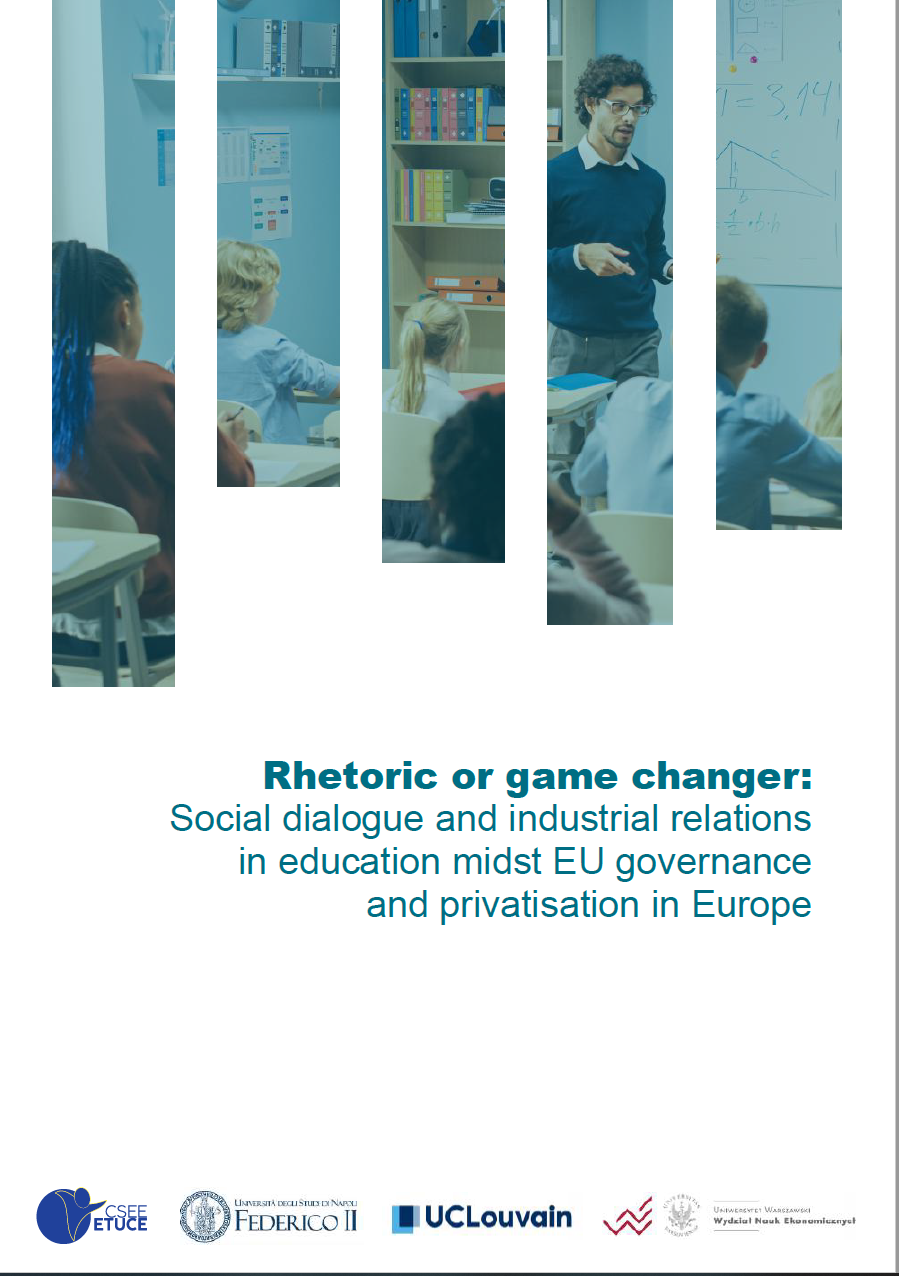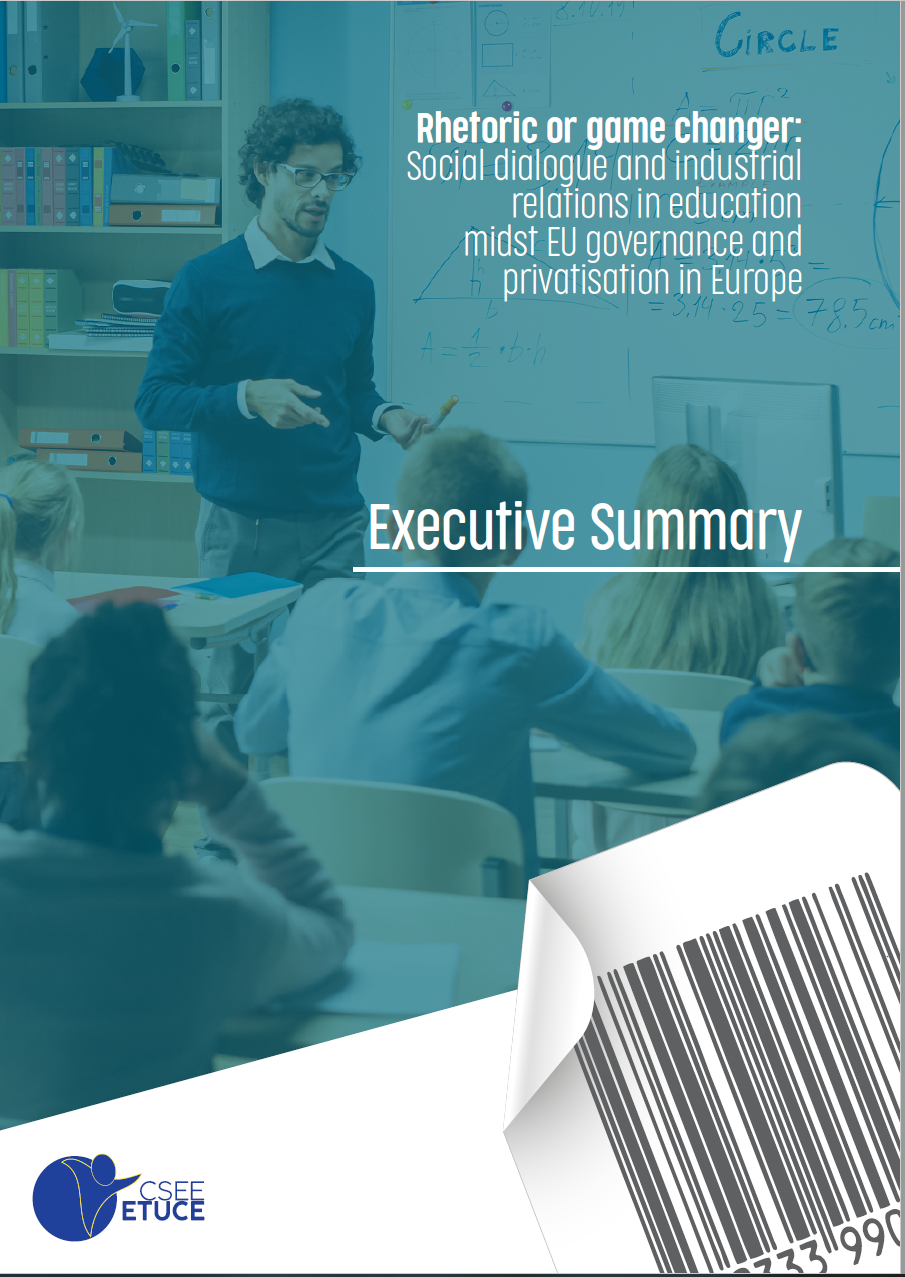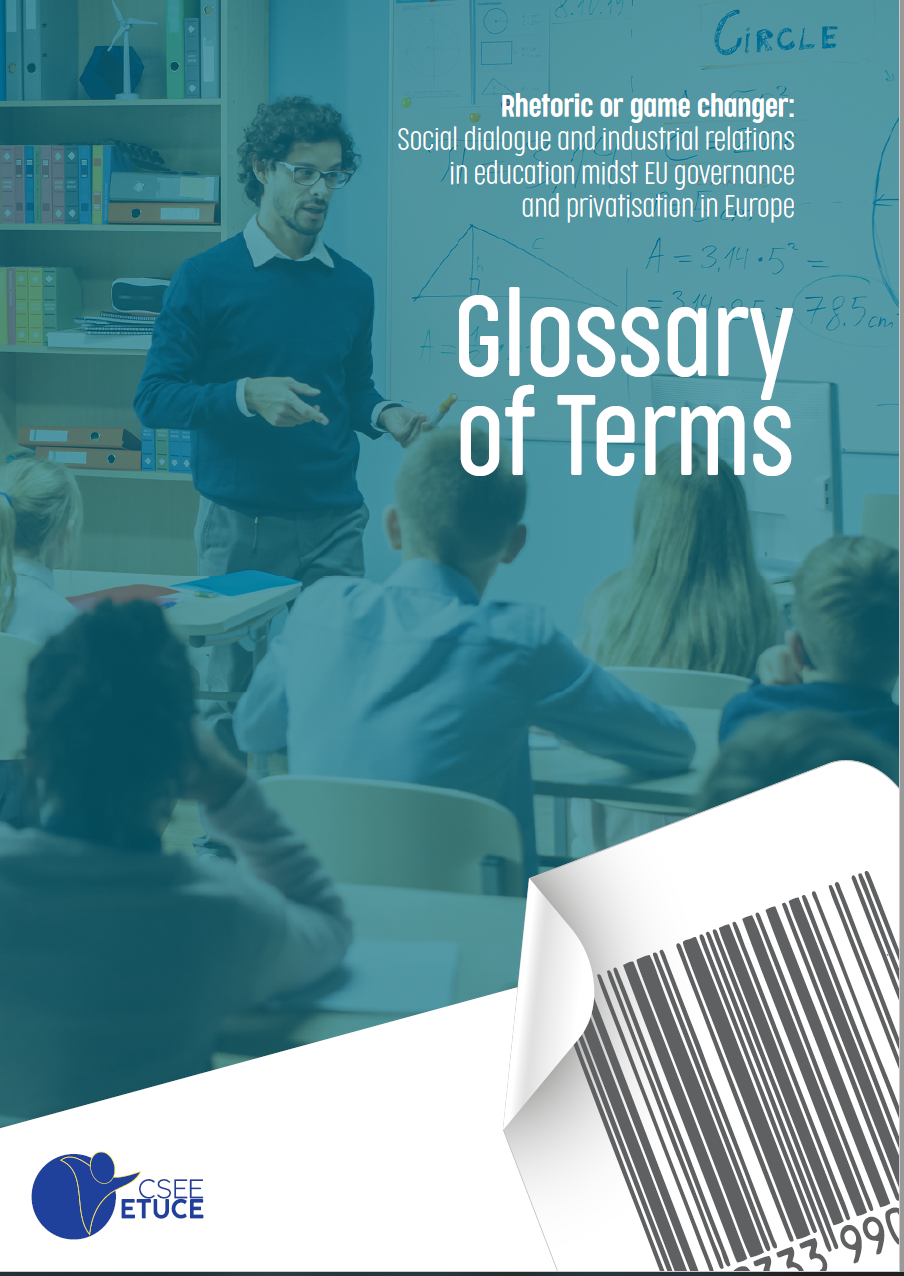Research Design and Methodology
The ETUCE is coordinating the project IR-EDUREFORM: “Social dialogue and industrial relations in education: the challenges of multi-level governance and of privatisation in Europe”, a new one-year European research project, working in a consortium with the Catholic University of Louvain (Belgium), the University of Naples Federico II (Italy) and the University of Warsaw (Poland).
-
Projects and Tools
-
YOUR TURN! Teachers for Trade Union Renewal (2018-2020)
-
Activities Your Turn!
-
ESSDE partners promoting migrant and refugee integration (2017-2019)
-
Activities
-
EU CONVINCE project – EU Common Values Inclusive Education (2018-2020)
-
Activities
-
OiRA project – Online Interactive Risk Assessment tool
-
Empowering education trade unions to address gender equality in the teaching profession through social dialogue (2018-2019)
-
Activities
-
ETUCE Online Database of Good Practices
-
Education Trade Unions and Inclusive Schools: Embracing Diversity in Education (2019-2021)
-
e-Speed (2020-2021)
-
Privatisation and Industrial Relations (2020-2021)
-
Activities IR-EDUREFORM Project
-
Education for Social Change: The role of Education Trade Unions in addressing sustainable environmental development (2021-2022)
-
Attractiveness of the Teaching Profession (2021-2023)
-
ELNE : European Leadership Network Europe
-
ETU4REF: Education Trade Unions support the inclusion of refugees and migrant (2023-2025)
-
APRES COVID
-
Your Turn 2: Teachers for Trade Union Renewal
-
InclEdu4AllNeeds

PROJECT CONSORTIUM COORDINATION GROUP
- Susan Flocken ETUCE Belgium
- Paola Cammilli ETUCE Belgium
- Xavier Dumay UC Louvain Belgium
- Tore Bernt Sorensen UC Louvain Belgium
- Juliette Fontaine UC Louvain Belgium
- Alessandro Arienzo University of Naples Federico II Italy
- Giuseppe D'Onofrio University of Naples Federico II Italy
- Claudio Franchi University of Naples Federico II Italy
- Emiliano Grimaldi University of Naples Federico II Italy
- Francesca Peruzzo University of Naples Federico II Italy
- Pietro Sebastianelli University of Naples Federico II Italy
- Maciej Jakubowski University of Warsaw Poland
- Tomasz Gajderowicz University of Warsaw Poland
- Gabriela Grotkowska University of Warsaw Poland
Related topics
The mixed-method research design considers the complex multi-scalar governance architecture of the EU and combines quantitative and qualitative methods. It is critical to the project to capture the dynamics between EU and national levels. In addition to the analysis of EU level developments, four European case systems have been selected for this purpose, representing different clusters in terms of “industrial democracy”, drawing from Eurofound (2018), and defined by four sub-dimensions: 1) autonomy of social partners in collective bargaining; 2) representation rights at both macro- and company level; 3) participation of employees in decision-making at company level; and 4) influence in terms of bargaining power. These are: Sweden, Belgium, Poland and Italy.
The mixed method research design involves different and complementary types of analyses, involving various types of data: statistical analysis, policy document analysis, semi-structured interviews with key stakholeders, policy network analysis and network ethnology. Based on document analysis and interviews, this latter innovative model (policy network and ethnology) will allow to accordingly ‘trace’ how policies have been created and identify the public and private sector organisations involved in IR, social dialogue, and education reform.






